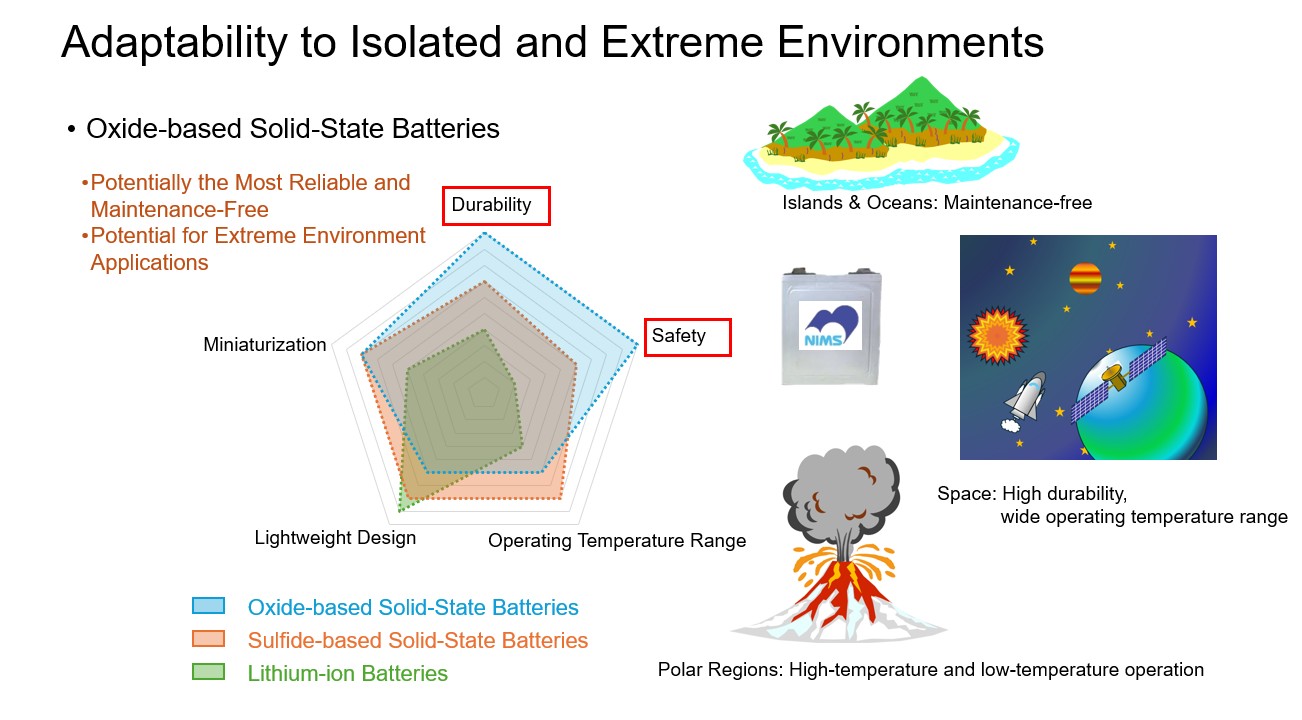About the Project
MEXT Materials Processing Science project ("Materealize")
Science on Processes of All-solid-state Lithium Ion Batteries
- Project Manager:TAKADA Kazunori
- Research Period:2019.10~2026.3
For achieving sufficient performance of all-solid-state batteries for practical use, it is essential to densify the electrolyte materials so as to increase interface area between the materials, and the interface should be well conductive. The conventional process for densification of oxide-based solid electrolytes is sintering at high temperatures. While the sintering phenomenon proceeds with temperature to reduce grain-boundary resistance, undesirable resistive phases may form as the reaction products between electrolyte and electrode active materials at the same time.
The project is devoted to establish the process science to dissolve the dilemma as to interfacial resistance of poorly sintered materials and formation of resistive phases during high-temperature sintering. In addition, the origin of the inherent interfacial resistance, which remains in well-densified electrolyte materials, is addressed to establish the process science for further reduced interfacial resistance in oxide-based all-solid-state batteries.
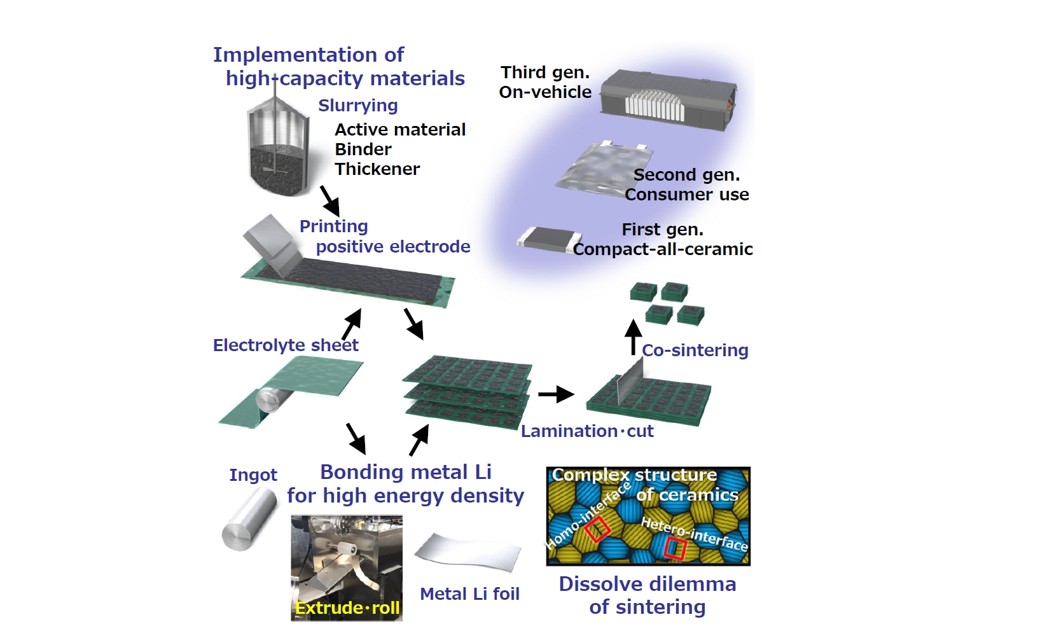
JST MIRAI Program Large-scale Type
Development of advanced hydrogen liquefaction system by using magnetic refrigeration technology
- Program Manager:NISHIMIYA Nobuyuki
- Research Period:2018.11~2028.3
- JST Official Website:JST-Mirai Program
For the supply chain of hydrogen, liquefaction cost may occupy1/3 of total supply price, therefore, developing a high-efficient hydrogen liquefier is one of the most important technology issues for incoming hydrogen society. Magnetic refrigeration using the magnetocaloric effect has potential to realize liquefaction efficiency higher than 50%, and also to be environmentally friendly and cost effective. A hybrid refrigeration cycle consisting of precooling cycle and magnetic active regenerator cycle has been proposed and estimated to achieve a liquefaction capacity of 100kg/day with FOM=0.5. Our new project is committed to develop① such a high efficient hydrogen liquefier and also, ② compact and energy saving re-condensation refrigerator to realize zero boil-off in the liquid hydrogen storage.
We are developing a new refrigeration system utilizing “magnetic refrigeration” as an innovative hydrogen liquefaction technology, replacing conventional gas refrigeration. This will lead the way in promoting diverse hydrogen energy applications, from mobility to hydrogen power generation.
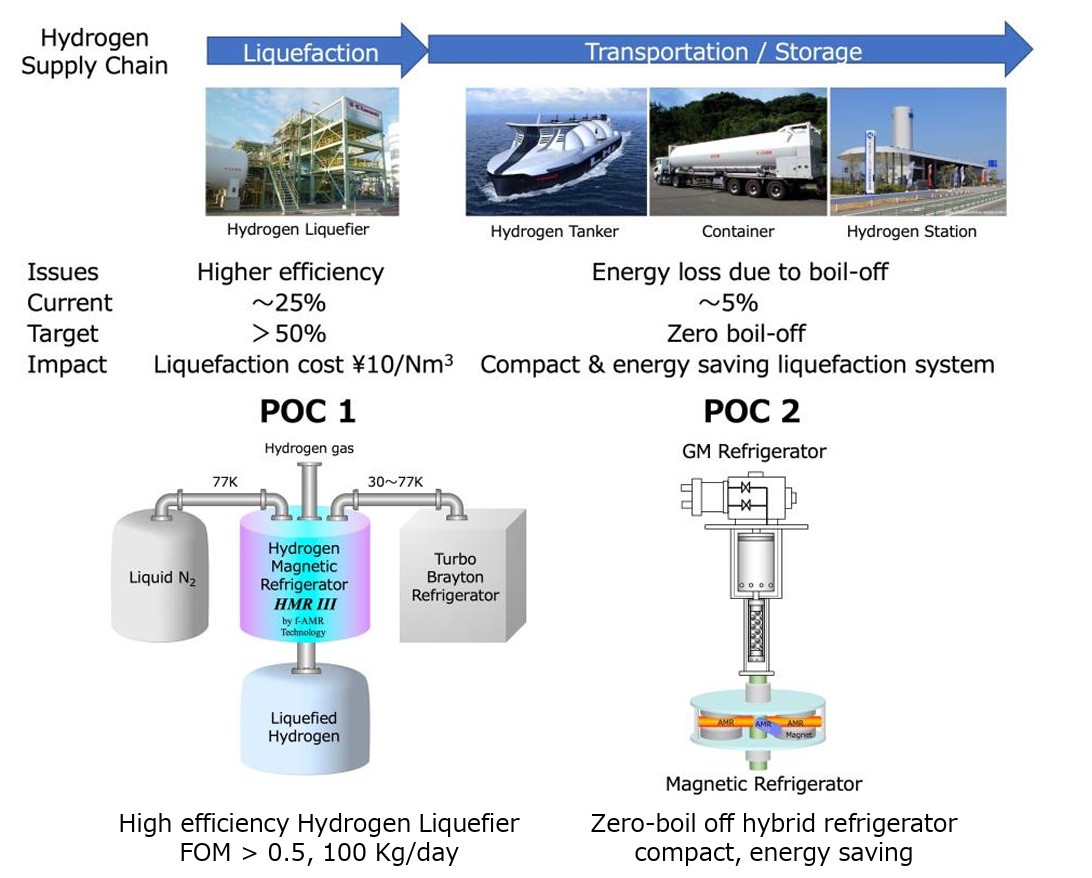
JST COI-NEXT Advanced Battery Collaboration
- Representative:KANAMURA Kiyoshi
- Research Period:2020.12~2030.3
- Official Website:Advanced Battery Collaboration
The Advanced Battery Collaboration aims to create a safe and secure society where clean energy is accessible to everyone and essential goods, services, and information reach every individual and community's corners through the research and development of next-generation batteries with various applications and performances.
To maximize energy density, the inside of the battery is densely packed with materials, and electrode reactions and material transport occur under conditions where substances, heat, and stress are unevenly distributed in a confined space. Our research center aims to establish the academic principles necessary to comprehend and control these complex physicochemical phenomena and their hierarchy at multiple scales. Based on these fundamental events, we will design innovative batteries. Furthermore, by creating analysis and development design protocols for batteries that allow for diverse performances—such as voltage, output, energy density, and lifespan—we aim to design versatile storage batteries that will enable a clean energy society where people, objects, environments, and data are interconnected.
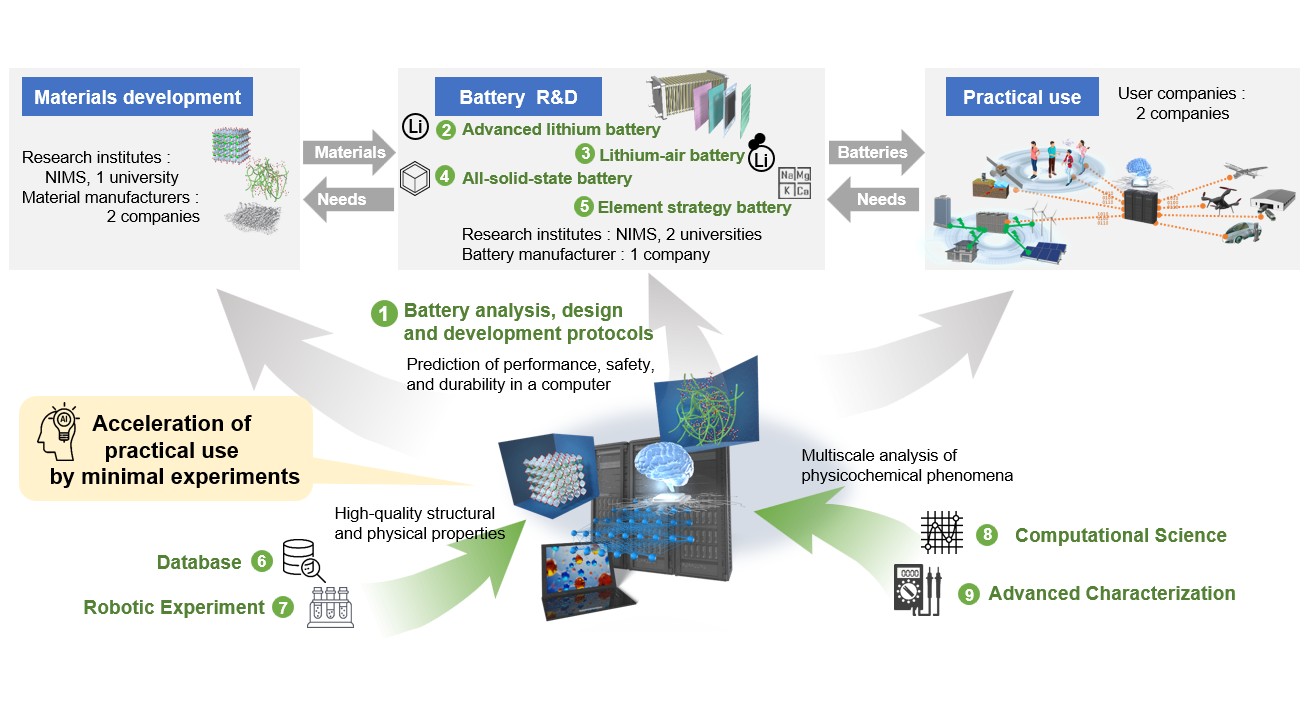
JST GteX(Green Technologies of Excellence)
Research Platform Integrated with Advanced Characterization and Digital Transformation Techniques for Batteries and Hydrogen Technologies
- Project Leader:MASUDA Takuya
- Research Period:2023.10~2028.9
- JST Official Website:Research Platform Integrated with Advanced Characterization and Digital Transformation Techniques for Batteries and Hydrogen Technologies | GteX (Green Technologies of Excellence)
We build and operate a research platform for batteries and hydrogen technologies, integrated with advanced characterization and digital transformation techniques.
The platform provides GteX researchers with the infrastructure necessary for prototyping test cells, for evaluating the cell performance, and for characterizing the structure of materials/electrodes/cells under one roof. We further develop the cutting-edge multiscale/multimodal characterization techniques using this infrastructure for clarifying the mechanism of physicochemical phenomena underlying the cell performance in collaboration with teams in storage batteries and hydrogen area.
Those experimental data are efficiently collected to construct an integrated database for high-throughput R&D. We develop various AI analysis tools to analyze the data and link it to the search for new materials and structures to improve the cell performance and durability.
- NIMS Battery Research Platform Official Website
- DICE(NIMS Materials Data Platform (MDPF)) Official Website
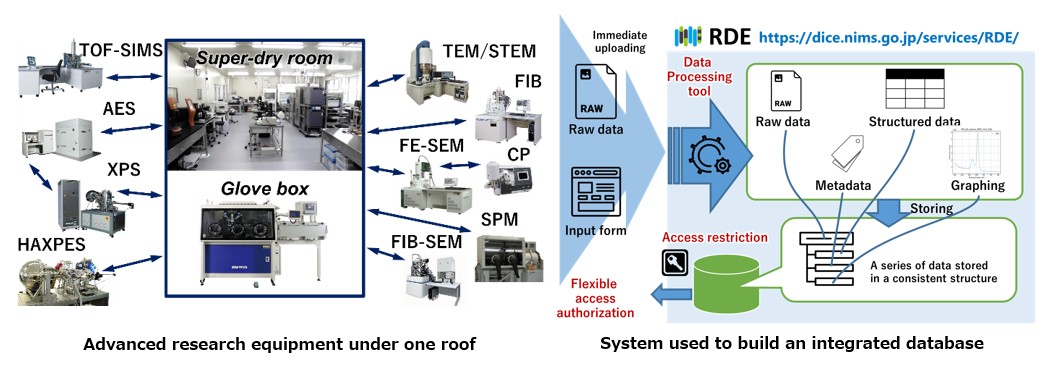
JST Key and Advanced Technology R&D through Cross Community Collaboration Program (K Program)
Research and Development Project Title
Development of Oxide-Based Solid-State Batteries Applicable to Isolated and Extreme Environments
- Principal Investigator:TAKADA Kazunori
- Research Period:2025.6~2030.5
Driven by growing demand for storage batteries in isolated and extreme environments such as outer space, oceans, and islands, there is a need to develop next-generation storage batteries that offer high durability, high safety, and operation across a wide temperature range while maintaining energy densities comparable to current lithium-ion batteries. Among next-generation batteries, oxide-based solid-state batteries possess characteristics particularly suited to meeting these demands. While they have reached commercialization for small electronic devices, the technology for scaling them up to larger sizes and higher capacities has not yet been established.
Therefore, this research and development plan aims to establish key technologies: (1) process technologies enabling large-scale production, and (2) stacking technologies achieving high output and high energy density. Combining these with the latest material research results and databases, we will conduct (3) concept verification using bulk-type model batteries. This approach seeks to establish next-generation storage battery technology capable of application-oriented operation under extreme conditions—ultra-high temperatures, ultra-low temperatures, ultra-safety, and ultra-durability.
Specifically, we will focus on three battery systems at different R&D stages. For solid-state sodium batteries, which are ahead in technological maturity, we will establish large-area and long-life technologies to realize input/output-oriented batteries. Furthermore, by applying these technologies to garnet- and pyrochlore-type systems, we will create energy-density-oriented batteries and innovative new solid-state batteries demonstrating groundbreaking performance.
